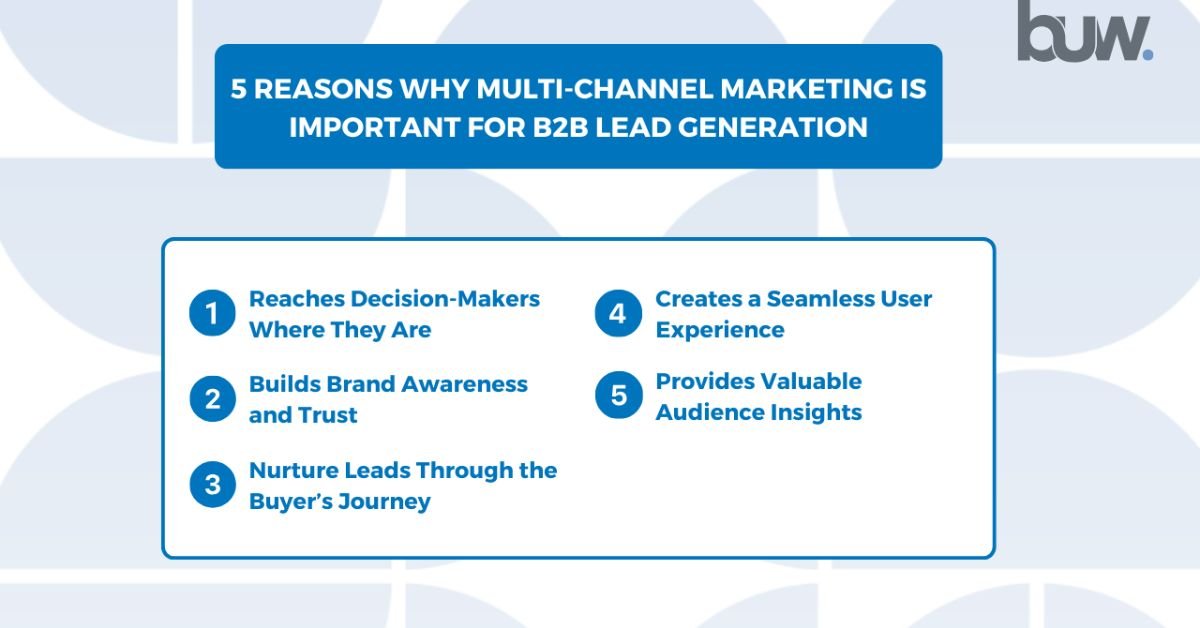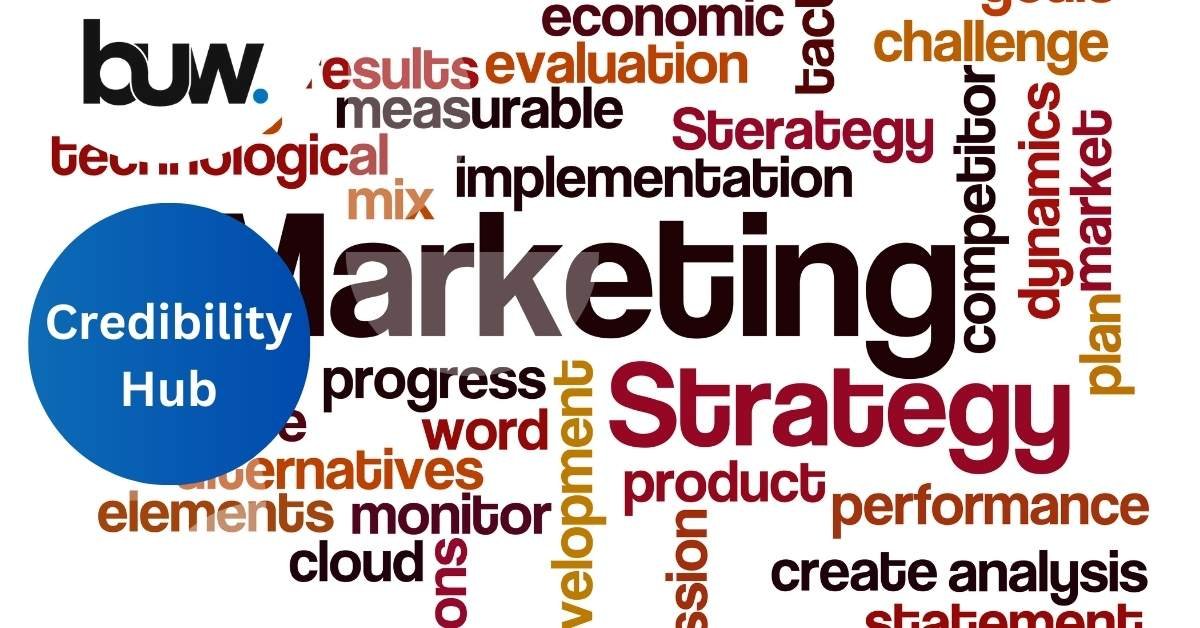Do you want to take your B2B lead generation efforts beyond the limitations of typical single-channel approaches?
Think about employing multi-channel marketing to significantly increase your reach and engagement with potential clients.
According to Retail Dive, single-channel campaigns can earn up to a 5.4% average engagement rate. In contrast, those utilising three or more channels could benefit from an engagement rate of around 18.96%.
In today’s information-saturated world, relying solely on a single message through a single channel may not be as effective as employing a multi-channel approach. You must be present where they are, offering valuable information that speaks to their requirements and decision-making process.
So, how does multi-channel marketing work, and why is it so important for B2B lead generation?
This blog will look into the details of this transforming strategy and explain why it is the foundation of successful B2B lead generation in today’s saturated digital landscape.
What is Multi-Channel Marketing?
Multi-channel marketing is exactly what it sounds like connecting potential clients across multiple platforms and touchpoints. This includes social media, email, search engines, websites, and even traditional means such as direct mail.
What’s the goal? To reach your audience where they are, deliver a consistent and seamless experience across all platforms.
5 Reasons Why Multi-Channel Marketing is Important for B2B Lead Generation
Here are five compelling reasons why multi-channel marketing is the ultimate tool you need to generate B2B leads:

1. Reaches Decision-Makers Where They Are

B2B executives are continuously on the move, switching between devices and platforms to stay informed and productive. They could start their day by reviewing industry updates on LinkedIn, consuming instructive information during breaks, and catching up on emails throughout their commute.
By leveraging a multi-channel approach, businesses can increase their chances of reaching decision-makers at ideal times in their busy schedules, maximising the chances of engagement and conversion.
2. Builds Brand Awareness and Trust

Consistent exposure across multiple platforms plays a key role in shaping brand impressions and building trust with B2B executives. Repeated exposure to a brand across different channels promotes familiarity and brand authority.
This top-of-mind placement assures that when a need occurs, executives will choose your brand first, resulting in lead generation and conversions.
3. Nurture Leads Through the Buyer’s Journey

The B2B buying process is complex and non-linear, with decision-makers going through several phases before reaching a purchase decision.
Multi-channel marketing allows businesses to adjust their messaging and content to meet the particular requirements and preferences of prospects at each stage of the buying experience.
Whether it’s raising awareness through insightful blog articles, delivering in-depth white papers for consideration, or displaying successful B2B case studies for decision-making, a multi-channel approach offers comprehensive lead nurturing and conversion optimisation.
4. Creates a Seamless User Experience

Multi-channel marketing, like repairing a faulty pipe to ensure a continuous flow of water, bridges gaps in the customer journey, offering a seamless experience across touchpoints.
A single-channel strategy may fail to catch the attention or interest of specific portions of the audience. By diversifying channels and content types, businesses can precisely direct prospects along the sales funnel, minimising friction and increasing engagement.
5. Provides Valuable Audience Insights

In the age of data-driven marketing, actionable insights are critical for optimising B2B lead generation methods and increasing ROI. Multi-channel marketing allows businesses to collect extensive data on audience behaviour, preferences, and engagement metrics from multiple platforms.
Using advanced analytics tools, businesses can acquire deep insights into which content resonates most with their audience, which platforms create the greatest interaction, and adapt their strategy accordingly to improve lead generation performance over time.
Frequently Asked Questions (FAQs)
Let’s go over some frequently asked questions from executives about multi-channel marketing.
There’s no secret number. The greatest strategy is to target the channels where your target audience spends their time. Begin by researching your target consumer profile and tailoring your strategy accordingly.
There are a variety of marketing automation solutions available to help you automate your campaigns, plan content across many channels, and track results.
One common mistake is to spread yourself too thinly across too many retailers. Instead, concentrate on the platforms where your audience is most active and allocate your resources effectively.
Conclusion
We hope that this blog has helped you understand the unquestionable value of multi-channel marketing for B2B lead generation.
Multi-channel strategies enable long-term growth and success in today’s competitive landscape by expanding your reach, increasing visibility, improving engagement, developing trust, and optimising the customer journey.
Ready to implement a winning multi-channel marketing strategy and generate more B2B leads? Book an appointment now for a personalised consultation.
Charo Mel Peters is a content specialist who specialises in creating thought-provoking blogs about restaurant marketing. Her main objective is to provide thorough answers and strategic insights to the pressing problems that restaurant owners frequently face.
Contact
- charo(at)restaurantsmarketing(dot)com(dot)au







